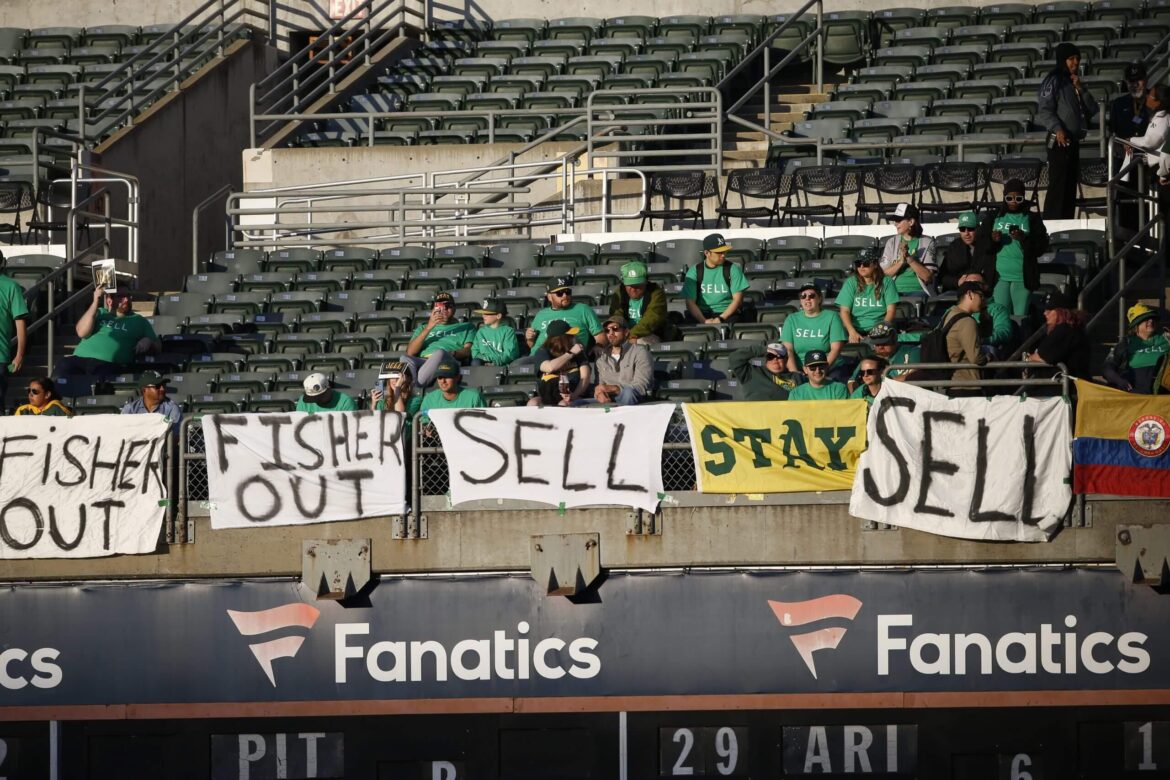In the wake of the Oakland Athletics’ contentious departure to Las Vegas, the landscape of Major League Baseball (MLB) in the Bay Area is at a crossroads. The A’s relocation marks not only the end of an era for the franchise but also raises questions about the future of baseball in a region known for its passionate fanbase and rich sports culture. As local communities grapple with the impact of the team’s exit, discussions surrounding MLB expansion in the Bay Area are gaining momentum. Could this shift signal a new chapter for baseball in Northern California? In this article, we delve into the implications of the A’s tumultuous exit and explore the viability of bringing a new franchise back to the Bay Area, examining the potential economic benefits, fan support, and the league’s appetite for growth.
Future of Baseball in the Bay Area: Evaluating the Viability of MLB Expansion
In light of the recent departure of the Oakland Athletics to Las Vegas, the Bay Area’s baseball landscape is ripe for reflection on the prospects of MLB expansion. With the A’s having bid adieu, fans and officials are left to consider whether a second Major League team could thrive in a region historically saturated with sports fervor. The Bay Area boasts a passionate and diverse fan base, and with the current focus on equitable access, there is significant interest in addressing the void left by the A’s. Key factors influencing potential expansion include:
- Market Size: The Bay Area remains one of the largest and most affluent metropolitan areas in the United States.
- Fan Engagement: Local communities are eager for a resurgence of baseball excitement, reflected in attendance rates at Giants games.
- Local Economy: Robust sponsorship opportunities and economic activity indicate that a new franchise could thrive financially.
Various models for bringing a new team to the Bay Area have emerged, emphasizing the importance of strategic planning and community input. A preliminary analysis might consider whether to relocate an existing franchise or to create a brand-new team from the ground up. Either scenario could utilize state-of-the-art facilities and engage in collaborations with local organizations. Below is a brief overview of differences between the options:
| Option | Pros | Cons |
|---|---|---|
| Relocate Existing Team | Faster market entry, established fan base | Potential backlash from current city, branding challenges |
| New Franchise | Custom branding, community engagement opportunities | Longer timeline, higher initial costs |
As discussions continue, stakeholders must weigh these factors alongside the desires of local fans, and how an expansion team would fit into the already vibrant fabric of Bay Area sports culture.
- Advertisement -
Strategic Location and Fan Engagement: Key Factors Influencing Bay Area Expansion Decisions
The Bay Area presents a unique landscape for Major League Baseball (MLB) expansion, shaped by its vibrant demographics and rich sports culture. Key factors influencing this potential move include:
- Population Density: With over 7.7 million residents, the Bay Area boasts a significant fanbase eager for more live sporting events.
- Affluence: The region’s high median income levels suggest profitability for franchises through ticket sales, luxury seating, and premium merchandise.
- Cultural Diversity: A diverse population opens avenues for innovative engagement strategies, drawing in fans from various backgrounds.
Engagement with local communities remains paramount as MLB considers the Bay Area’s expansion. Successful integration strategies may include:
- Grassroots Initiatives: Collaborating with local schools and organizations to foster youth engagement and cultivate lifelong fans.
- Community Events: Hosting open days that allow fans to interact with players and experience team culture firsthand.
- Digital Innovation: Utilizing social media platforms and apps to enhance fan interaction, ensuring real-time updates and exclusive content are accessible.
Community Impact and Economic Considerations: Recommendations for a Sustainable Baseball Future
The potential for Major League Baseball (MLB) expansion in the Bay Area stands not only to rejuvenate a region recently rocked by the Oakland Athletics’ relocation but also to foster community engagement and economic revitalization. With the right strategies in place, a new franchise could drive significant local investment and provide numerous benefits, including:
- Job Creation: Establishing a new team would create construction jobs, operational roles, and services surrounding game-day activities.
- Local Business Growth: Ballpark events could boost nearby restaurants, shops, and hotels, stimulating the local economy.
- Community Programs: Teams often engage in outreach, promoting sports and fitness programs that strengthen community bonds.
Economic considerations are paramount in evaluating the feasibility of a new franchise. Potential stakeholders must weigh the costs of stadium development, maintenance, and operational overhead against projected revenue streams and community support. Essential factors to consider include:
| Consideration | Impact |
|---|---|
| Stadium Financing | Public vs. private funding strategies may affect local taxpayer support. |
| Fan Engagement | Creating a loyal fan base will require innovative marketing and outreach. |
| Long-Term Sustainability | Formulating plans for economic resilience post-expansion. |
Concluding Remarks
As the dust settles on the Oakland Athletics’ turbulent departure, the future of Major League Baseball in the Bay Area hangs in the balance. The region, steeped in a rich baseball tradition, faces a pivotal moment that could shape its sporting landscape for generations to come. With discussions around potential expansion gaining momentum, stakeholders are now weighing the feasibility of introducing a new franchise to a community eager for the return of baseball glory. As the MLB considers its options, fans and analysts alike will be watching closely, hopeful that the rich heritage of the Bay Area will inspire a new chapter in its baseball story. Only time will tell if a new team will take the field in this storied region, but one thing is certain: the conversation has only just begun.


